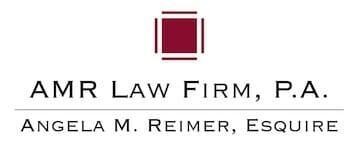Bankruptcy Attorney in Tampa, FL
Main Types of Bankruptcy
There are several chapters under the U.S. Bankruptcy Code, and each one addresses specific circumstances faced by debtors. There are also laws that relate to businesses, municipalities and corporations. Filing the petition using a bankruptcy attorney has a demonstrably higher rate of success than claims filed by individuals without legal assistance. Filing the petition is just one part of the process, for all preparation and follow-through procedures must be done correctly in order to be successful. Aside from personal, there are also options for filing for business bankruptcy.
There are several chapters under the U.S. Bankruptcy Code, and each one addresses specific circumstances faced by debtors. There are also laws that relate to businesses, municipalities and corporations. Filing the petition using a bankruptcy attorney has a demonstrably higher rate of success than claims filed by individuals without legal assistance. Filing the petition is just one part of the process, for all preparation and follow-through procedures must be done correctly in order to be successful. Aside from personal, there are also options for filing for business bankruptcy.

Chapter 7 Bankruptcy
The U.S. Bankruptcy code allows debtors to obtain relief through Chapter 7. This chapter will allow the debtor to liquidate debts without paying their creditors. However, this is not always the best option for debtors who are involved in a business entity and wish to keep the business unaffected by the bankruptcy process. Unlike the rules under Chapter 13, the Chapter 7 petition does not arrange for a repayment schedule. Instead, assets in excess of the exempt amount are liquidated, and the proceeds (if any) are used to pay the creditor.
The U.S. Bankruptcy code allows debtors to obtain relief through Chapter 7. This chapter will allow the debtor to liquidate debts without paying their creditors. However, this is not always the best option for debtors who are involved in a business entity and wish to keep the business unaffected by the bankruptcy process. Unlike the rules under Chapter 13, the Chapter 7 petition does not arrange for a repayment schedule. Instead, assets in excess of the exempt amount are liquidated, and the proceeds (if any) are used to pay the creditor.
Chapter 13 Bankruptcy
This Chapter is often called the “working man's bankruptcy”. This Chapter is beneficial to those debtors who have assets they wish to keep and earn a steady income. In addition, the ability to keep (and modify) a home mortgage is one of the advantages of filing under Chapter 13. This chapter may allow the debtor to restructure their payment obligations in a way that allows them to get their payment schedule up-to-date. This type of bankruptcy petition is designed to assist the borrower in repaying a portion of the original debt.
This Chapter is often called the “working man's bankruptcy”. This Chapter is beneficial to those debtors who have assets they wish to keep and earn a steady income. In addition, the ability to keep (and modify) a home mortgage is one of the advantages of filing under Chapter 13. This chapter may allow the debtor to restructure their payment obligations in a way that allows them to get their payment schedule up-to-date. This type of bankruptcy petition is designed to assist the borrower in repaying a portion of the original debt.
Chapter 11 Bankruptcy
This option is an alternative for people who do not qualify to file under Chapter 7 or Chapter 13 of the Bankruptcy Code due to the amount of debt or other circumstances. Chapter 11 permits debtors to reorganize their debts in a manner that allows for the adjustment of the entire debt burden. For additional details, feel free to contact one of our qualified bankruptcy lawyers today.
This option is an alternative for people who do not qualify to file under Chapter 7 or Chapter 13 of the Bankruptcy Code due to the amount of debt or other circumstances. Chapter 11 permits debtors to reorganize their debts in a manner that allows for the adjustment of the entire debt burden. For additional details, feel free to contact one of our qualified bankruptcy lawyers today.
Common Bankruptcy Myths
Bankruptcy will not permanently ruin the petitioner's credit, and in fact can actually improve the debtor's credit. Another myth is that you cannot file bankruptcy if you have assets. Having assets may determine under which Chapter a debtor qualifies. Many people find a solution that will allow them to keep certain kinds of assets like homes, cars and businesses.
Another common myth holds that employed people are not qualified to file, which is simply untrue. Bankruptcy cases are filed by persons of all income levels. In addition, married couples are not required to file jointly and in some circumstances this is the best option.
All petitioners do need to follow specific rules for filing, which can be difficult in complex cases. This is why we encourage people who may need to file for bankruptcy to contact our office as soon as possible to discuss their options for achieving the best possible outcome.
Bankruptcy will not permanently ruin the petitioner's credit, and in fact can actually improve the debtor's credit. Another myth is that you cannot file bankruptcy if you have assets. Having assets may determine under which Chapter a debtor qualifies. Many people find a solution that will allow them to keep certain kinds of assets like homes, cars and businesses.
Another common myth holds that employed people are not qualified to file, which is simply untrue. Bankruptcy cases are filed by persons of all income levels. In addition, married couples are not required to file jointly and in some circumstances this is the best option.
All petitioners do need to follow specific rules for filing, which can be difficult in complex cases. This is why we encourage people who may need to file for bankruptcy to contact our office as soon as possible to discuss their options for achieving the best possible outcome.
